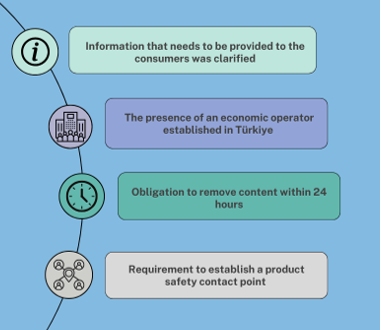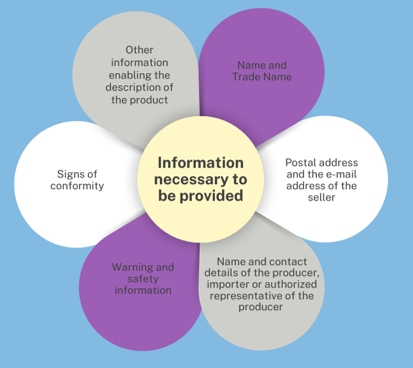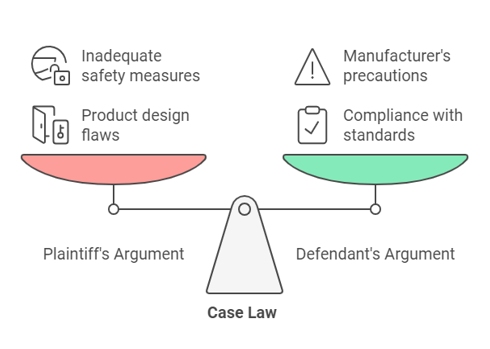- within Consumer Protection topic(s)
- in Turkey
- with readers working within the Utilities industries
- within Tax, International Law and Energy and Natural Resources topic(s)
- in Turkey
Regulation on Market Surveillance and Supervision of Products Placed on the Market Through Remote Communication Tools Came into Force
The long-awaited Regulation on Market Surveillance and Supervision of Products Placed on the Market Through Remote Communication Tools ("the new Regulation") has been published in the Official Gazette on October 30, 20241. It will enter into force on April 1, 2025.
This new Regulation provides for new rules concerning the placing of the products in the market via distance communication tools, the information that needs to be provided for these types of sales, the obligations of various economic operators (including the information society service providers and fulfilment service providers) as well the powers and responsibilities of authorized institutions in terms of market surveillance and supervision.
The highlights of the new Regulation can be summarized as follows:

- The scope of the information that needs to be provided to the consumers and end-users on the relevant distant communication tool has been clarified. According to the new Regulation, in addition to the name, the registered trade name, the postal address and the e-mail address of the seller; other information relating to the product must also be provided. This information includes the name and contact details of the producer/importer/authorized representative of the producer or the fulfilment service provider; the warning and safety information and signs of conformity in Turkish and other information enabling the description of the product, e.g. a photo of the product. The information society service providers are accordingly under the obligation to provide for the necessary technical infrastructure enabling the sellers to make this information available.

- The presence of an economic operator established in Türkiye was introduced as a pre-condition for certain products to be placed on the market in Türkiye. For the products that fall within the scope secondary legislation mentioned in the list published by the Ministry of Trade on its website2, one of the following economic operators must be established in Türkiye: the producer, the importer, the authorized representative or if none of these are present, the fulfilment service provider.
- An obligation to remove content within 24 hours has been introduced with the new Regulation. In a case where the authorized public body finds a product put on the market via distance communication tools to be non-compliant, it may require the information society service provider to remove the content and if such request has not been complied with within 24 hours, the authorized body may request the restriction of access to the online interface relating to that product. Following the decision to restrict access, Information and Communication Technologies Authority is notified to implement the decision.
- A requirement to establish a product safety contact point has been introduced. The information society service providers will have to establish a contract point in order to enable both authorized bodies and consumers to easily contact the platform with their requests and complaints. The contact information of this contact point shall be communicated to the authorized bodies and the contact point shall also be easily accessible by the end users through online interface.
Other Secondary Legislation
Since the beginning of 2024, there has been various developments in the secondary legislation regarding product safety.
- A new Communiqué on the Basic Criteria for Conformity Assessment Bodies and Notified Body Notifications, which sets down procedures and principles to be applied to the notification of the European Commission concerning the appointment, termination of appointment or any changes in the scope of authorization of the conformity assessment bodies and notified bodies to the European Commission, has entered into force in the beginning of the year.
- The lower and upper limits of the administrative fines updated in accordance with the revaluation rate for 2023 in the General Communiqué on Tax Procedure Law which corresponds to an increase of 58.46%. In this regard, the administrative sanctions from approx. $ 100 to approx. $ 70.000 may be applicable per product in non-compliance cases.
- A new Regulation on the Market Surveillance and Inspection of Radio Equipment, entered into force.
- A new Regulation on the Reclassification of Certain Active Non-Medical Product Groups entered into force.
Case Law

The 3rd Chamber of the Court of Cassation rendered an interesting judgment in the beginning of 2024.3 The dispute is based on a tragic incident resulting in the death of a child. The deceased child, aged 6, entered the washing machine at home while unsupervised and died of asphyxiation following the closing of the door of the washing machine from the inside. The family of the deceased child filed a lawsuit against the producer for the compensation of their material and moral loss. The plaintiffs argued that the product was defective as it did not meet the necessary safety standards as required by the Law. According to them, the fact that the washing machine could easily be locked from the inside with a slight hand or food movement and that the design of the machine allowed it to be easily opened by a child from the outside indicated that the machine was not a safe product.
The defendant mainly argued that the product was manufactured in accordance with the standards set by Turkish Standards Institute and VDE Standards, that the relatively easy opening of the door of the machine served better consumer use as it prevents leakage risks and ensures safe drum rotation movement, and that there are no safety requirements or obligations which requires the product to be able to be opened from inside. The defendant further argued that the product shall be considered safe taking into account the safety warning in the manual which accompanied the product, which clearly wrote that the product should not be used by children unless there is a person who will be responsible for their safety.
Several issues such as the date from which the interest will accrue, the applicable prescription period and the rate of the contributory negligence of the plaintiff (mother) were discussed during the proceedings. That said, the most significant outcome of the dispute is that all the courts, namely the tribunal of first instance, Trabzon Circuit Court of Appeal and the 3rd Chamber of Court of Cassation, agreed that the product was unsafe in terms of product liability law. In other words, the defendant's argument that the product was produced in accordance with the highest technical standards was not accepted by the Courts to qualify a product as safe.
Developments in the EU Law
2024 has been an important year in terms of legal and regulatory landscape of product safety and liability. The European Council formally adopted the new EU Product Liability Directive, which was the last step in the EU's legislative process to update its 1985 product liability legislation. Member States will have to enact the Directive into their national laws within two years after its publication in the Official Journal, corresponding to the second half of 2026.
Among key changes are a broader definition of product which encompasses stand-alone software and digital products, indicating that software failures or cybersecurity vulnerabilities will have the potential to lead to product liability claims; a broader application of the presumption of defect which shifts the burden of proof and an extension of liability to additional economic actors, including but not limited to online marketplaces and fulfilment service providers. The new Directive also expands the scope of damages by including new kinds of harm, such harm to psychological well-being and harm brought on by data loss or corruption.
2024 is also an important year for the EU regarding its product safety regulation, as the General Product Safety Regulation, which replaces the General Product Safety Directive of 2001, will come into force on December 13. This Regulation introduces, among others, particular responsibilities for online marketplace providers, strengthened standards for product traceability, reinforced regulations for market surveillance and Particular guidelines for managing product safety recalls, such as a required recall notice form and consumers' right to redress.
Türkiye's Product Safety and Technical Regulations Law, which provides for rules concerning not only product safety but also product liability, has been mainly inspired by the soon-to-be repealed General Product Safety Directive of 2001 and Product Liability Directive of 1985. It remains to be seen whether the Law will also be subject to similar modifications to keep up with the needs of digitalization of our economies.
Conclusion
In conclusion, product safety legislation plays a critical role in ensuring consumer protection within the rapidly growing realm of e-trade. With the convenience of online shopping comes the challenge of regulating products from diverse suppliers across the globe. Robust safety laws help mitigate the risks of substandard or hazardous goods entering the market, fostering trust in digital platforms and empowering consumers to shop with confidence. Such legislation also promotes accountability among online retailers and manufacturers, ensuring fair competition and adherence to safety standards. As e-trade continues to expand and evolve, staying informed about relevant updates in product safety legislation is vital to maintaining a secure and reliable digital marketplace that protects consumers and sustains ethical business practices.
Footnotes
1. Official Gazette dated October 30, 2024 and numbered 32707. You can read the full text through this link.
2. T.C. Ticaret Bakanlığı Access date: 18.11.2024
3. Yargıtay 3. Hukuk Dairesi, E. 2023/2691 K. 2024/326 T. 23.1.2024
The content of this article is intended to provide a general guide to the subject matter. Specialist advice should be sought about your specific circumstances.



